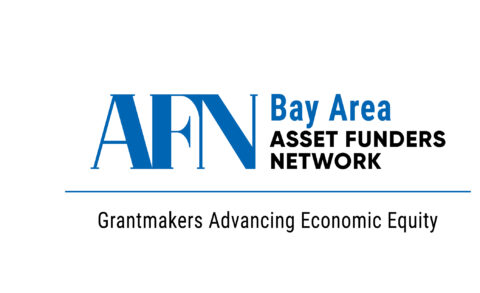
 FROM LEAH MAYOR, Ph. D., SENIOR DIRECTOR, ASSET FUNDERS NETWORK
FROM LEAH MAYOR, Ph. D., SENIOR DIRECTOR, ASSET FUNDERS NETWORK
JANUARY 2025
AFN Short Take is a blog series highlighting insights and perspectives from recent AFN programming events.
The asset-building field is fond of saying there is no silver bullet to achieving economic equity. That’s largely because the systems that create inequity are, by design, deeply embedded in our policies and economic systems. We see this the moment a baby is born. Some children—those born into wealth—see investments in time and capital that set them on a trajectory of health and financial security. Others born into poverty, too often, enter the intergenerational impacts of disinvestment felt personally and at the community level.
Nearly 300 Funders, Scholars and Practitioners Gather for Baby Bond Discussion
On January 16, 2025, the Asset Funders Network (AFN) and The New School Institute on Race Policy and Political Economy hosted Innovations in Baby Bonds at the New York Federal Reserve Bank, featuring new research from Stanford University on how Baby Bonds and direct cash assistance, when paired together, amplify impact.
Speakers included Connecticut State Treasurer Erick Russell and Dr. Darrick Hamilton, one of the early designers and advocates for Baby Bonds who serves as the Henry Cohen Professor of Economics and Urban Policy and the founding Director of the Institute on Race, Power and Political Economy, as well as other advocates and practitioners.
Connecticut Baby Bonds invests $3,200 at birth to babies born within HUSKY, Connecticut’s state Medicaid program. In the first year, Connecticut established 17,000 accounts. The funds will be invested by the Treasurer to passively grow as an asset, with projections ranging from $11,000 to $24,000. These funds will become available to the recipient at 18-30 years of age for investment in a Connecticut home, business, college education, or retirement account. Today, 20 states are exploring or considering Baby Bonds. Nine states have public or privately funded pilot demonstrations underway. Baby Bonds are an effective way to ensure every child has the initial capital to build wealth and equalize the wealth birth lottery.
Key Insights: How Baby Bonds Can Disrupt the Birth Lottery
The investment for the child to have an asset is consequential by design. Dr. Hamilton, addressing the nearly 300 attendees, noted, “The difference between owning a business and being a worker is capital. The difference between renting and owning a home is a down payment. The difference between having a college degree and not being laden by debt is wealth.”
“The difference between owning a business and being a worker is capital. The difference between renting and owning a home is a down payment. The difference between having a college degree and not being laden by debt is wealth.”
– Dr. Darrick Hamilton
Treasurer Russell (D-CT) acknowledged that Baby Bonds can also create a powerful moment to build trust, increase civic engagement, and strengthen democracy. North Haven First Selectman Michael Freda (R ) explained why this policy is important for the future economic prosperity of communities and will have support across political party affiliations.
Speakers David Grusky and Max Rong, contributing field researchers, concurred that Baby Bonds and Guaranteed Income, taken together, are likely to be a powerful tool to disrupt the birth lottery and help create the unfulfilled American Dream vision for all children.
The framework and findings resonated with practitioners Dara Eskridge, CEO of InvestSLT, Hope Wollensack, Executive Director of the Georgia Resilience Opportunity (GRO) Fund, and Laura Clancy, the Executive Director at The Bridge Project. These leaders have designed and are administering programs for their communities that are fighting generational wealth poverty with both increased income and an asset to ensure an opportunity to build wealth.
For example:
- InvestSTL has pioneered Rooted which offers $20,000 paired with financial services to support and invest in homeownership and business ownership and stave gentrification.
The Bridge Project has effectively dispersed $60 million in guaranteed income payments across six states, including Connecticut and New York. In Connecticut, the model pairs Connecticut Baby Bonds with a pre- and post-natal guaranteed income program. Their guaranteed income model has inspired a recent call for New York’s Birth Allowance for Beginning Year (BABY) Benefit, the first proposed state-funded guaranteed income program and may be gaining traction in Connecticut. - The GRO Fund pairs their data-driven guaranteed income program In Her Hands with an accelerated Baby Bonds pilot to support Black women in Georgia by providing a bond up to $40,000 with a $500 monthly guaranteed income.
Supporting Baby Bonds & Guaranteed Income: A Call to Funders
AFN’s Joe Antolín moderated a panel with Devin Murphy, Founder and Principal of Integrated Purpose; Kilolo Kijakazi, one of the founders of the asset-building field and AFN during her tenure at the Ford Foundation; and AFN member Mendi Blue-Paca, President and CEO of the Fairfield County (Connecticut) Community Foundation. The panel discussed why philanthropy can and should engage in a range of strategies to advance equitable inclusion in the economy with stable sources of assets to increase the opportunities for wealth building and to broaden ownership across the growing economy through innovation such as Baby Bonds.
Each panelist shared insights from their vantage point on how philanthropy can help grow the economy equitably. They highlighted philanthropy’s role as a testing ground for innovation, a platform for sharing evidence-based results, and a catalyst for refining strategies. The discussion emphasized the importance of engaging community members in program design and fostering intentional partnerships with policy advocates and policymakers to strengthen relationships and build the momentum needed for scaling systemic change. The panel was clear that to solve for the problem that every baby truly has a level playing field, “more is more,” i.e., to spur true economic meritocracy, then wealth-building opportunities need to be defined by one’s talent and potential and not their race, gender, income, or the zip code in which one is born. We have to commit to systemic change—not just program adoption—to make markets accessible to everyone.
AFN’s Guaranteed Income Primer and funder guide offer insights into how funders can support existing and pilot direct cash initiatives. These recommendations are relevant to build support for guaranteed income and baby bonds alike. We hope to see more alignment in support for both paired together. Some recommendations include:
- Support policy and public funding to increase economic security and the potential to engage in wealth building through guaranteed income and baby bonds.
- Invest in narrative change efforts, especially lifting up the stories and voices of those impacted by these programs. Drive the research-based narrative shift to combat ingrained stereotypes. For example, people who receive unconditional benefits overwhelmingly spend it to support their families (diapers, groceries, education), pay down debt, continue to work, and even invest in credentials that further their career and income.
- Align public programs and tax policy to create exemptions and waivers so that recipients do not lose other critical benefits just as they are beginning to build wealth.
- Continue to fund research to strengthen the case.
Baby Bonds and Guaranteed Income are designed to address complex, systemic disadvantages faced by far too many. While these solutions are not a panacea, we have seen successes in implementation across many landscapes and populations that are valuable in building public support. Each step brings new opportunities for philanthropy to target critical populations, build viable infrastructure, educate and inform broadly, and safeguard these investments from predatory actors. Leveraging Baby Bonds and Guaranteed Income to support income and wealth simultaneously will expand the ”birth lottery,” increase civic engagement, and build institutional trust—ensuring our economy truly belongs to us.
Resources
Guaranteed Income Primer for Funders, Asset Funders Network
Guaranteed Income Funder QA, Asset Funders Network
Why Baby Bonds? Institute on Race, Power and Political Economy
Improving Child Poverty Through Unconditional Cash Allowances, The Bridge Project
The Babies in the River: Creating Equitable Safety Nets and Springboards to Opportunity, Social Policy Institute
Study: A Universal Basic Income Would Grow the Economy, Vox
Pregnant People in CT Can Now Apply for Monthly Cash Assistance, CT Mirror
NYC Council Launches Direct Cash Program for Dozens of Homeless Families, Gothamist
Program Findings, Mother & Infant Cash Coalition

